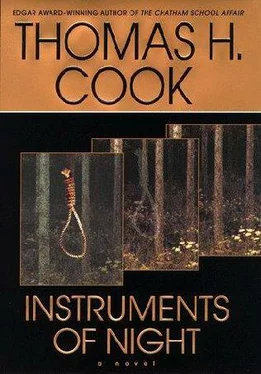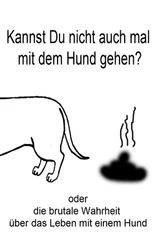Thomas Cook - Instruments of Night
Здесь есть возможность читать онлайн «Thomas Cook - Instruments of Night» весь текст электронной книги совершенно бесплатно (целиком полную версию без сокращений). В некоторых случаях можно слушать аудио, скачать через торрент в формате fb2 и присутствует краткое содержание. Жанр: Триллер, на английском языке. Описание произведения, (предисловие) а так же отзывы посетителей доступны на портале библиотеки ЛибКат.
- Название:Instruments of Night
- Автор:
- Жанр:
- Год:неизвестен
- ISBN:нет данных
- Рейтинг книги:3 / 5. Голосов: 1
-
Избранное:Добавить в избранное
- Отзывы:
-
Ваша оценка:
- 60
- 1
- 2
- 3
- 4
- 5
Instruments of Night: краткое содержание, описание и аннотация
Предлагаем к чтению аннотацию, описание, краткое содержание или предисловие (зависит от того, что написал сам автор книги «Instruments of Night»). Если вы не нашли необходимую информацию о книге — напишите в комментариях, мы постараемся отыскать её.
Instruments of Night — читать онлайн бесплатно полную книгу (весь текст) целиком
Ниже представлен текст книги, разбитый по страницам. Система сохранения места последней прочитанной страницы, позволяет с удобством читать онлайн бесплатно книгу «Instruments of Night», без необходимости каждый раз заново искать на чём Вы остановились. Поставьте закладку, и сможете в любой момент перейти на страницу, на которой закончили чтение.
Интервал:
Закладка:
Thomas H. Cook
Instruments of Night
CHAPTER 1
Looking out over the city, imagining its once-coal-blackened spires, he knew that he did it to keep his distance, that he set his books back in time because it was only in that vanished place, where the smell of ginger nuts hung in the air and horse-drawn water wagons sprayed the cobblestone streets, that he felt truly safe.
It was nearly dawn, and from the narrow terrace of his apartment, Graves could see a faint light building in the east. He’d been up all night, typing furiously, following Detective Slovak through the spectral back streets of gaslight New York, the two of them-hero and creator-relentlessly pursuing Kessler from one seedy haunt to the next, the groggeries of Five Points, the whorehouses of the Tenderloin, its boy bars and child brothels, watching as Kessler’s black coat slipped around a jagged brick corner or disappeared into a thick, concealing bank of nineteenth-century fog. Together, they’d questioned bill stickers and news hawkers and a noisy gaggle of hot-corn girls. They’d dodged rubberneck buses and hansom cabs and crouched in the steamy darkness of the Black Maria. For a time they’d even lingered with a “model artist” who’d just come from posing nude for a roomful of gawking strangers, Slovak mournfully aware of the woman’s fate, his dark eyes watching silently as her youth and beauty dripped away, her life a melting candle. They’d finally ended up on the rooftop of a five-story tenement near the river. Slovak teetered at the brink of it as he searched the empty fire escape, the deserted street below, amazed that Kessler had done it again, disappeared without a trace. It was as if he’d found some slit in the air, slipped through it into a world behind this world, where he reveled in the terror he created.
Graves glanced back into his apartment. The chaos that had accumulated during the night was spread throughout the room, small white cartons of Chinese food, dirty cups and glasses, a desk strewn with papers, his ancient manual typewriter resting heavily at the eye of it all. Compared to the sleek computer screens and ergonomic keyboards most other writers now used, the typewriter looked like a perverse relic of the Inquisition, a mechanical thumbscrew or some other infinitely refined instrument of medieval torture. Once, at an exhibition of such artifacts, Graves had seen a dagger made in the form of a crucifix, its handle cut in the shape of Christ’s body to provide a better grip. Years later he’d written a scene in which Kessler had pressed an identical weapon into Sykes’ trembling hand, forced him to draw it slowly across the sagging folds of an old woman’s throat. Sykes. Kessler’s cowering sidekick. The shivering, panicked instrument of Kessler’s will.
Graves took a sip of coffee and let his eyes drift out over the East River, the bridges that spanned its gray waters, cars moving back and forth on them like ants along a narrow twig. Within an hour traffic would become an unbroken stream, the noise of the city steadily increasing down below, so that even from his high aerie, perched like an eagle’s nest on the fortieth floor, he’d have to close the windows to keep it out.
It was nearly five hours before he had to catch a bus upstate, to the Riverwood Colony, where he’d been invited to spend the weekend. He’d need to get a little rest before then, since his mind was too easily alarmed by changing scenes, distant voices, unfamiliar smells for him ever to sleep in transit. Instead, he’d stare out the bus window, alert and edgy, as towns and villages flashed by, inventing tales as he went along. Passing an empty field, he might suddenly envision the moldering bones of some once-desperate girl, a runaway who’d knocked at the wrong door a hundred years before, young and vulnerable, pale and hungry, wrapped in a threadbare woolen shawl, snowflakes clinging to her lustrous hair, her small, childlike voice barely audible above the howl of the wind: I’m so sorry to disturb you, sir, but might I warm myself beside your fire? He could see the man beyond the door, imagine what he imagined, her quivering white breasts, the cold-stiffened nipples, feel his fingers probing the latch as he drew back to let her in, his voice sweet, unthreatening, Of course, my dear, come in.
It was always the isolated farmhouses that called up the most dreadful scenes. Graves knew firsthand the horror that could befall them, how vulnerable they were to sudden violence and death. Once, edging close to the forbidden, he’d actually described a young woman’s murder in such a place: Kessler, the arch villain in all of Graves’ books, directing Sykes through the brutal ritual while Slovak, Graves’ tireless hero, knowing where Kessler was, what he was doing, and desperate to stop him, had pounded up the flickering, smoke-filled aisles of a stranded snowbound train, panting heavily by the time he’d finally reached the engine. But once there, he’d found the engineer too terrified by the storm to press onward, so that once again Kessler had escaped due to some unexpected cowardice, fear the servant upon which evil could most confidently rely. It was a circumstance often repeated in Graves’ books, one of his abiding themes.
Graves drew in a breath and felt a wave of exhaustion settle over him. He knew where the weariness had come from and why it was so heavy. He and Slovak had just trudged up five flights of stairs, slammed through a thick wooden door, and raced across a wide black roof, arriving breathless and exhausted at its edge.
Now, looking out over the city, it seemed strange to Graves that within an instant he had transported himself to this quiet terrace where he stood, calmly sipping tepid coffee in the early morning light while in the world of his creation, Slovak remained on the other side of town, thirty blocks away in space and more than a century instant in time, staring out over the same enigmatic web of streets and rooftops as Kessler crept up from the rear, grinning as he drew the little silver derringer from beneath his coat, good and evil about to face each other squarely in the dawning light.
Graves left his apartment for the Port Authority Bus Terminal a full thirty-two minutes before he needed to. His early departure sprang from his sense that being on the move was safer than remaining in place. A bird in its nest, warming its eggs, with something to protect, that was the predator’s best mark. To Graves, this truth amounted to a law of nature and applied equally to both animal and human worlds. To stop allowed the net to fall, the trap to spring, the hand to reach out from behind, to grasp the unsuspecting shoulder.
Once at the bus station, Graves remained on the move. He wandered through the terminal’s wide corridors, watching strangers as they lounged near their boarding gates, his eyes roaming freely until they settled upon a particular person. It was a behavior he’d given to Kessler as well, directing him into densely packed railway stations, his keen, predatory eyes forever searching the throng for the one who was lonely or the one who was abandoned, cutting from the herd the straggler and the cripple, sniffing the air for the scent of open wounds. “Victims are born for my pursuit,” Kessler had once written in one of the letters he used to taunt and torture Slovak. “Just as villains are born for yours.”
On this particular morning Graves’ attention was drawn to a woman with tangled gray hair who sat at Gate 35. She was eating a huge muffin, using a brown paper bag both as a plate and, occasionally, a napkin. Since the woman was neither young nor beautiful, Graves supposed that she might well be less alert, believing that none around her could possibly take an interest. If that were true, she would be the perfect victim for Kessler. Isolated, unobservant, dully focused on a slab of cornmeal rather than the black-coated figure who, in Graves’ imagination, had just eased himself into the seat beside her.
Читать дальшеИнтервал:
Закладка:
Похожие книги на «Instruments of Night»
Представляем Вашему вниманию похожие книги на «Instruments of Night» списком для выбора. Мы отобрали схожую по названию и смыслу литературу в надежде предоставить читателям больше вариантов отыскать новые, интересные, ещё непрочитанные произведения.
Обсуждение, отзывы о книге «Instruments of Night» и просто собственные мнения читателей. Оставьте ваши комментарии, напишите, что Вы думаете о произведении, его смысле или главных героях. Укажите что конкретно понравилось, а что нет, и почему Вы так считаете.












